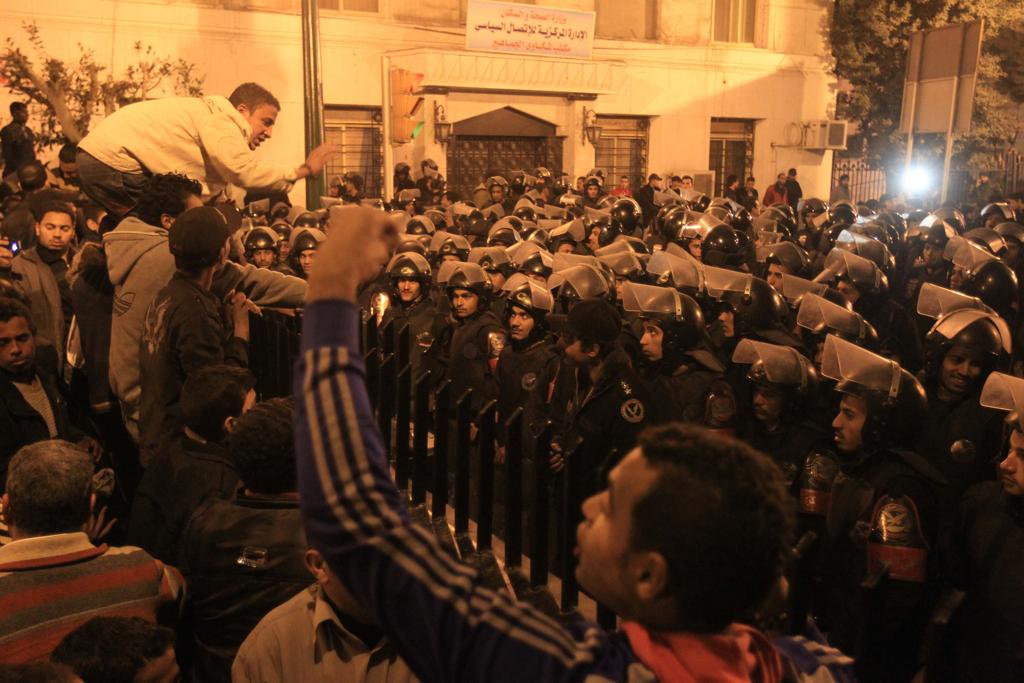Egypt: Islamists and liberal activists clash outside parliament
Hundreds of Egyptian protesters demanding the end of military rule were prevented from reaching parliament by backers of the Muslim Brotherhood, which holds the majority in the assembly.
And so it is. A year after Egyptians rose up in solidarity against their decades-long dictator, the two largest political mobilizing forces are now at each other's throats — quite literally.
At a landmark session of Egypt's new parliament in Cairo today, supporters of the winning party of the Muslim Brotherhood and hundreds of anti-military activists that descended on parliament came to blows on the downtown streets of the capital.
The activists, many of whom spearheaded the uprising last year, had organized a series of marches to coincide with the speech of the military-appointed prime minister's speech at the session, calling for a more swift transfer of power to civilian authorities. Egypt is now run by a military junta that seized control during the revolt in February 2011.
More from GlobalPost: Jimmy Carter says Egypt's military won't fully submit to civilian rule
But, according to witnesses, they were met with a meters-deep shield of Muslim Brotherhood loyalists, who once formed a protective human chain around Cairo's iconic Tahrir Square but who were now forcibly preventing the revolutionaries from reaching parliament.
The Islamist cordon so angered the activists that many threw projectiles — water bottles, rocks, even shoes — into the crowd, chanting that the Muslim Brotherhood had sold out the people's revolution by cozying up to Egypt's ruling generals.
Many described the situation as "tense" with the potential for further violence. But by roughly 8 p.m. in Cairo, the crowd had largely dissipated, leaving both sides very bitter. Security forces did not intervene; it was the Brotherhood doing the policing.
Some liberal, secular Egyptians feel their revolution has been betrayed: snatched by the army, dismissed by the people and now put-down by the Brotherhood. But many also see the legislature, now dominated by the Brotherhood and other Islamists, which were marginalized under former President Hosni Mubarak, as a revolutionary success and a more practical way to dismantle military rule.
More from GlobalPost: Egypt's Unfinished Revolution: Revisiting Tahrir Square
But activists said their push for a speedier handover to civilian control only benefits the Brotherhood: any interim civilian government (before presidential elections this spring) would be run by their politicians already in parliament.
So, what gives?
We want to hear your feedback so we can keep improving our website, theworld.org. Please fill out this quick survey and let us know your thoughts (your answers will be anonymous). Thanks for your time!
